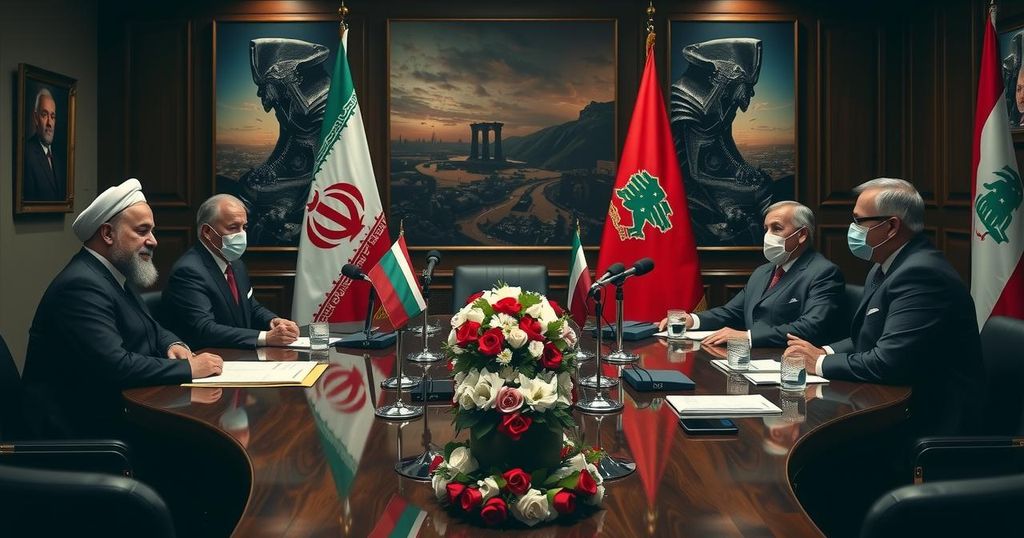Iran has pledged steadfast support for Lebanon amid ongoing conflicts with Israel, as senior Iranian advisor Ali Larijani met with Lebanese officials to discuss cease-fire prospects. These developments come in light of continued Israeli airstrikes on Lebanon, resulting in significant economic damage and casualties. Despite negotiations, the situation remains dire, with rising tensions contributing to humanitarian crises on both sides.
In a significant diplomatic gesture, Iran reaffirmed its unwavering support for Lebanon amidst ongoing conflict with Israel. During his visit to Beirut, senior Iranian official Ali Larijani expressed Iran’s solidarity with the Lebanese populace, emphasizing a desire to assist rather than to disrupt regional efforts to establish a cease-fire between Israel and Hezbollah. Larijani highlighted the maturity of Lebanon as a nation and the prudence of Hezbollah, hinting at a complex interplay where Iran aims to facilitate resolutions while backing these groups historically labeled as terrorist organizations by Western nations. As negotiations progress, particularly involving U.S. Ambassador Lisa Johnson drafting a peace proposal, military confrontation continues, as evidenced by Israeli airstrikes in Lebanese territory. The relentless bombardment has resulted in severe infrastructural and economic damage, with the World Bank estimating losses amounting to $8.5 billion in Lebanon’s ongoing conflict. Larijani’s dialogue suggests a possible alignment with a cease-fire agreement, contrasting sharply with the escalation of hostilities that has led to significant casualties on both sides, complicating peace prospects in the region.
The situation in Lebanon is primarily shaped by longstanding tensions with Israel, exacerbated by the activities of Hezbollah, a Lebanese militant group backed by Iran and recognized as a terrorist organization by several Western nations. Following a surge in hostilities that included rocket fire from Hezbollah and Israeli airstrikes, diplomatic efforts have intensified to negotiate a cease-fire. This ongoing conflict has already claimed thousands of lives and inflicted substantial damage to Lebanese infrastructure, prompting international concern and humanitarian considerations. Iran’s involvement in the region, particularly its support for Hezbollah, also reflects its broader geopolitical ambitions in supporting allied groups in confrontation with Israel and Western influences.
In conclusion, Iran’s recent pledge of support to Lebanon amidst ongoing military operations highlights the complex interplay of regional allegiances and the challenges of securing peace. With significant economic damages suffered due to the conflict and ongoing negotiations illustrating a potential for cease-fire, the burden of the military aggression has heavy consequences for both civilian populations and broader regional stability. The continuation of hostilities raises urgent questions about the future of peace initiatives and the role of international actors in mitigating conflict in Lebanon and Israel.
Original Source: www.voanews.com






